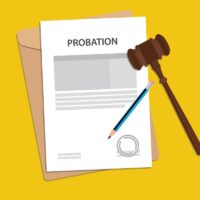What Is the Difference Between Parole and Probation in New York?

Navigating the criminal justice system in New York can be confusing for the average person who hopefully doesn’t have a lot of experience with it. One area we find where people often have questions is understanding probation versus parole. Below we discuss what these two very different and very important concepts are and how they are applied in New York. If you’ve been arrested and charged with a misdemeanor or felony offense in Orange County or elsewhere in the Hudson Valley, reach out to Dupée & Monroe, P.C., to speak with a knowledgeable and experienced Goshen criminal defense lawyer.
Understanding Probation in New York State
Probation is a type of court-ordered supervision, typically used as an alternative to incarceration. Under New York Penal Law, probation is often granted to individuals convicted of crimes, allowing them to remain in their community under the supervision of a probation officer. The conditions of probation are determined by the court and can vary depending on the nature of the offense and the individual’s history. Common conditions may include regular meetings with a probation officer, abstaining from illegal drug use, and avoiding contact with certain individuals.
Probation serves multiple purposes: it offers rehabilitation to the offender, ensures public safety, and reduces the burden on the prison system. Importantly, violating the terms of probation can lead to significant consequences, including the possibility of being sentenced to jail time.
The Role of Parole in the New York Criminal Justice System
Parole, on the other hand, is a form of conditional release from prison. In New York, parole is granted by the New York State Board of Parole. It allows individuals who have served part of their prison sentence to be released into the community under specific conditions. These conditions, similar to those of probation, are designed to aid in the individual’s reintegration into society while protecting public safety.
The decision to grant parole is based on several factors, including the nature of the original crime, the individual’s behavior while incarcerated, and their perceived risk to society. The Parole Board conducts a thorough review, including hearings, to determine an individual’s eligibility for parole.
Key Differences Between Parole and Probation
While both probation and parole involve supervision and adherence to certain similar conditions, there are distinct differences:
-
Point of Implementation: Probation is an alternative to incarceration and is typically granted by a judge at sentencing. Parole, conversely, is a conditional release from prison, granted after an individual has served a portion of their sentence.
-
Authority: Probation is overseen by the sentencing court and managed by probation officers, while parole is governed by the New York State Board of Parole.
-
Purpose: Probation is often used for rehabilitation and as a means of avoiding the harsher environment of prison for less serious offenses. Parole, however, is a mechanism for reintegrating individuals who have already served time in prison back into the community.
-
Eligibility: Eligibility criteria for probation and parole differ significantly. Probation is considered during the initial sentencing, whereas parole is only an option after serving a portion of a prison sentence.
Legal Assistance in Parole and Probation Matters in New York
Understanding the intricacies of parole and probation in New York is vital for those encountering the criminal justice system, whether for the first time or not. For individuals in Goshen and Orange County, New York, Dupée & Monroe, P.C. provides skilled and knowledgeable legal guidance. Our experienced criminal defense attorneys can help you understand your rights and options, the conditions of your probation or parole, and what steps to take if you’re facing allegations of a violation.
If you or a loved one requires legal advice or representation related to a criminal legal matter in the Hudson Valley, do not hesitate to call Dupée & Monroe, P.C. at 845-294-8900. Our team is committed to providing skilled and compassionate legal support to help you navigate the complexities of the criminal justice system.
